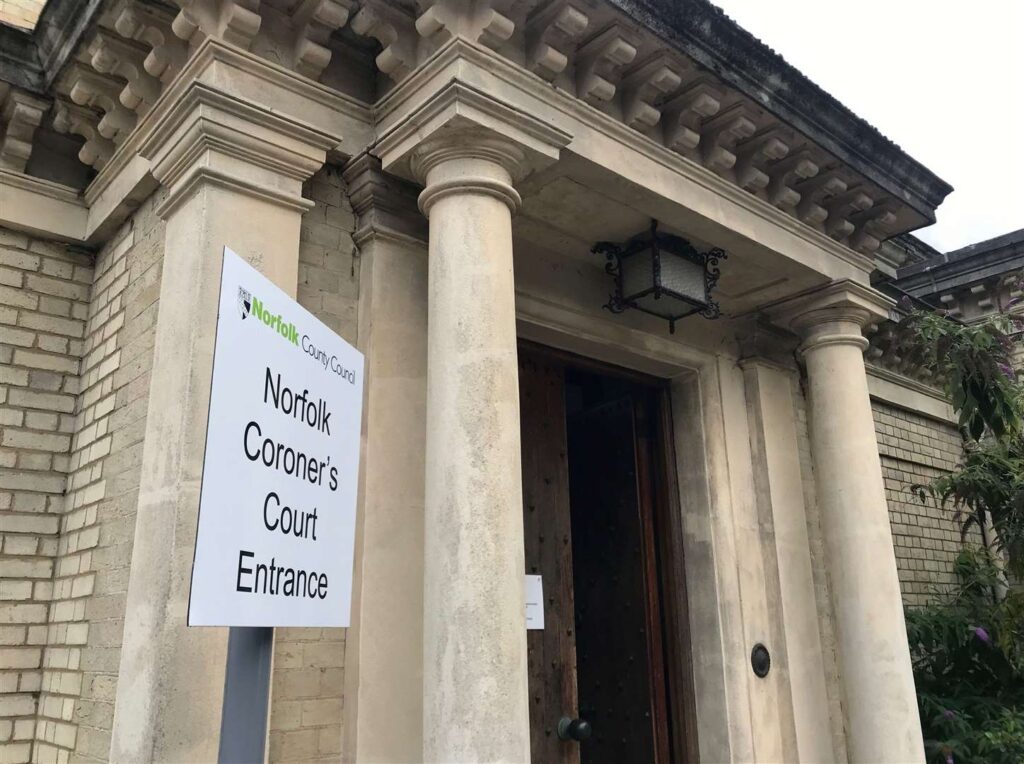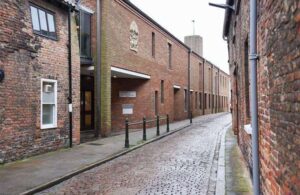A hospital porter who was passionate about his job was found dead by a friend after hanging himself, an inquest heard.
Concerns were raised about 72-year-old Albert Keeling when he failed to appear at work at Lynn’s Queen Elizabeth Hospital on May 22.
A friend of Mr Keeling’s became concerned for his welfare and phoned to check up on him.
He answered, saying that he had called in sick and had diarrhoea, but that he was okay.
Mr Keeling later told his friend he was feeling better, but took his own life in his flat on Fred Ackland Drive in Fairstead just five days later.
At an inquest at Norfolk Coroner’s Court in Norwich today, senior coroner Samantha Goward said Mr Keeling’s death was a “deliberate act, but his intent was unknown”.
Emergency services were called to the flat on the afternoon of May 27, after Mr Keeling’s next of kin, a friend and work colleague, became concerned for his welfare.
The inquest heard that Mr Keeling had no family, and his wife had passed away some time ago. His next of kin said he would often help him out with everyday tasks.
The friend, who supplied a statement read out by the coroner, explained that Mr Keeling suffered a stroke in 2013, but continued his work part-time as a hospital porter.
“He loved talking to new doctors and nurses about his experience as a porter,” the statement read.
“Albert was glad he was working shorter days. His life was built around the QEH. He had nothing else in his life as a single man.”
The statement added that Mr Keeling’s friend had no concerns about his mental health, while he had made plans to go fishing in the future and had just bought a new car.
“I asked if he was okay, and he said he would tell me if something was wrong,” the statement added.
“His hobbies included photography, fishing and buying DVDs. He bought a new car and said how proud he was of his new toy.
“I just cannot understand why he did this and took his own life.”
Medical records from Mr Keeling’s GP showed that he had seen a doctor after suffering from depression and suicidal thoughts in 2007.
He had received help for this, and reported at the beginning of 2008 feeling a lot better and enjoying his job at the QEH.
The friend said that he first discovered that Mr Keeling had not been turning up to work after bumping into another hospital porter at a supermarket.
“He was not at work on Monday or Tuesday. Nobody had been round to check on him or told me about it as his next of kin,” the statement added.
“I spoke to my wife, and we both became concerned. I had a really bad feeling that something had happened to Albert.”
Once his friend arrived at Mr Keeling’s flat, he could not gain entry.
The emergency services were called, and the fire brigade had to break down Mr Keeling’s front door.
Ambulance crews found Mr Keeling hanging from a door. They did not attempt to resuscitate him.
No note was left by Mr Keeling.
A post-mortem examination determined that his cause of death was by hanging.
Ms Goward agreed with this, and came to a short-form narrative conclusion that Mr Keeling committed a “deliberate act, but his intent was unknown”.
She therefore unable to rule it a suicide.
She offered her condolences to Mr Keeling’s friends.
For confidential support on an emotional issue, call Samaritans on 116 123 at any time.
If you want to talk to someone confidentially, click here.
For more information on how we can report on inquests, click here.






